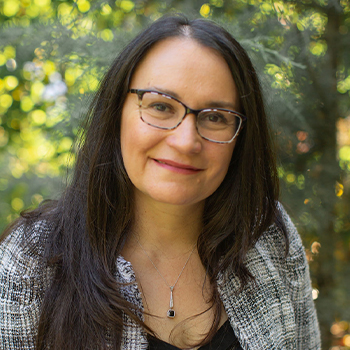In the last few years, therapy has become more accepted in our culture. It is becoming popular to include therapists in many shows and movies. There is also an open discussion about mental health in social media and other means of communication. While this is wonderful, stigma around Mental Health still exists in our Latinx communities. For many of us, having a mental health issue is a source of shame and a sign of weakness.
In this article, I will discuss what is mental health and the myths and facts about therapy.
Let’s first defined mental health:
“Mental health includes our emotional, psychological, and social well-being. It affects how we think, feel, and act. It also helps determine how we handle stress, relate to others, and make choices. Mental health is important at every stage of life, from childhood and adolescence through adulthood.” (mentalhealth.gov). Mental health issues vary in severity from anxiety and mild depression to severe mental illness such schizophrenia and bipolar disorders.
What is the role of therapy in our mental health well-being?
“Psychotherapy (sometimes called “talk therapy”) is a term for a variety of treatment techniques that aim to help a person identify and change troubling emotions, thoughts, and behavior. Most psychotherapy takes place with a licensed, trained mental health professional and a patient meeting one-on-one or with other patients in a group setting.” (National institute of mental health)
Therapy is one of the tools available to help with mental health conditions and emotional difficulties. But therapy is not a universal solution for every life stressor. Other treatments include psychotropic medications, coaching, and ancestral healing practices. Also, therapy does not replace family, friends, religion, or social connection.
As a psychotherapist, I feel honored when clients choose this process as their vehicle to healing. I believe that therapy can help many people achieve a healthier life but is not a miracle cure. For that reason, it is important to debunk some of the myths and misconceptions about therapy that exist in our communities:
Therapy helps you to know yourself
Therapy is not:
- One-size- fits-all
Therapy is not cookie cutter approach. each person is different and therapeutics interventions should be tailor for each unique client.
- Right for everyone
Not everyone needs therapy to get through hardship and not everyone believes on the benefits of therapy.
- Accessible for everyone
Therapy can be expensive making it difficult to access it for everyone. Also, many medical insurances do not offer or have limited coverage for mental health expenses. Looking for a therapist can be confusing as people do not always know where to start.
- A place to get advice
This is one of the misconceptions I have encounter many times in my practice. Therapy is not about telling you what to do, but rather therapy will guide you to unlock your own solutions.
- To fix you or change you
Therapy will not fix you because you are not broken. The goal of therapy is not to change you, but to help you understand yourself, the change happens by itself.
- Only for people with serious mental health illness or in crisis
Therapy helps with a wide range of issues: from helping people choose a career path or improve parenting to healing serious trauma or severe mental illness.
- Free from systematic oppression
You can experience racism, homophobia, sexism, or any other form of systematic oppression in therapy. Therapy is conducted by human beings with their own prejudices and biases. A good therapist will have a deep understanding of those systems and will continually do her own work to be aware of how those systems affect the therapeutic relationship.
- The same as talking to a friend or family, why to pay someone to listen to me?
Therapy is much more than just talking. The relationship between the client and the therapist is the most important aspect of therapy. The therapeutic relationship and the interventions use in sessions, add a different experience in the client’s narrative which also changes the neurocircuits in brain and body.
- A way to change others
In therapy we will focus on you. We help you understand how you perceive your relationships with others and how to navigate those relationships.
- All therapists are the same.
Each therapist brings her unique personality and style to her practice. Therapist are trained in different modalities and work with different issues.
- It is a long-term commitment.
You can decide what kind of therapy you want, there is short- and long-term modalities available for you.
Love yourself, care, acceptance, mental health.
Therapy (with me) is:
- A safe, supportive, and unbiased place in which self-exploration and self-care can take place.
- Therapy is work and can be difficult at times.
- A place where the interventions are tailored to your unique circumstances and needs.
- A place to heal trauma.
- A place where YOU are the most important person in each conversation.
- A place to face life challenges.
- A place where all parts of you are welcome, even the parts you do not like.
- A place where you can be validated and find empathy.
- Therapy will help you to uncover old beliefs that do not serve you, help you face difficult emotions, and improve your important relationships.
- Therapy is a science and an art. Techniques and modalities are based on scientific research, but it takes art to apply them to each individual client.
- Therapy is also a business. Many therapists are small business owners and need to market, set appropriate fees, and set rules like any other business.
Searching for therapy can be hard. Talking to a stranger about our dreams and fears can make us feel extremely vulnerable. I am here to support you! Connect with me is you need to find more information.
Sources: Resilience lab, Psychology Today, National Institute of Mental Health


